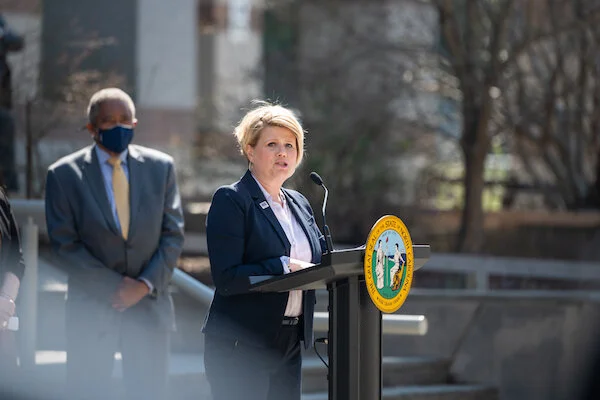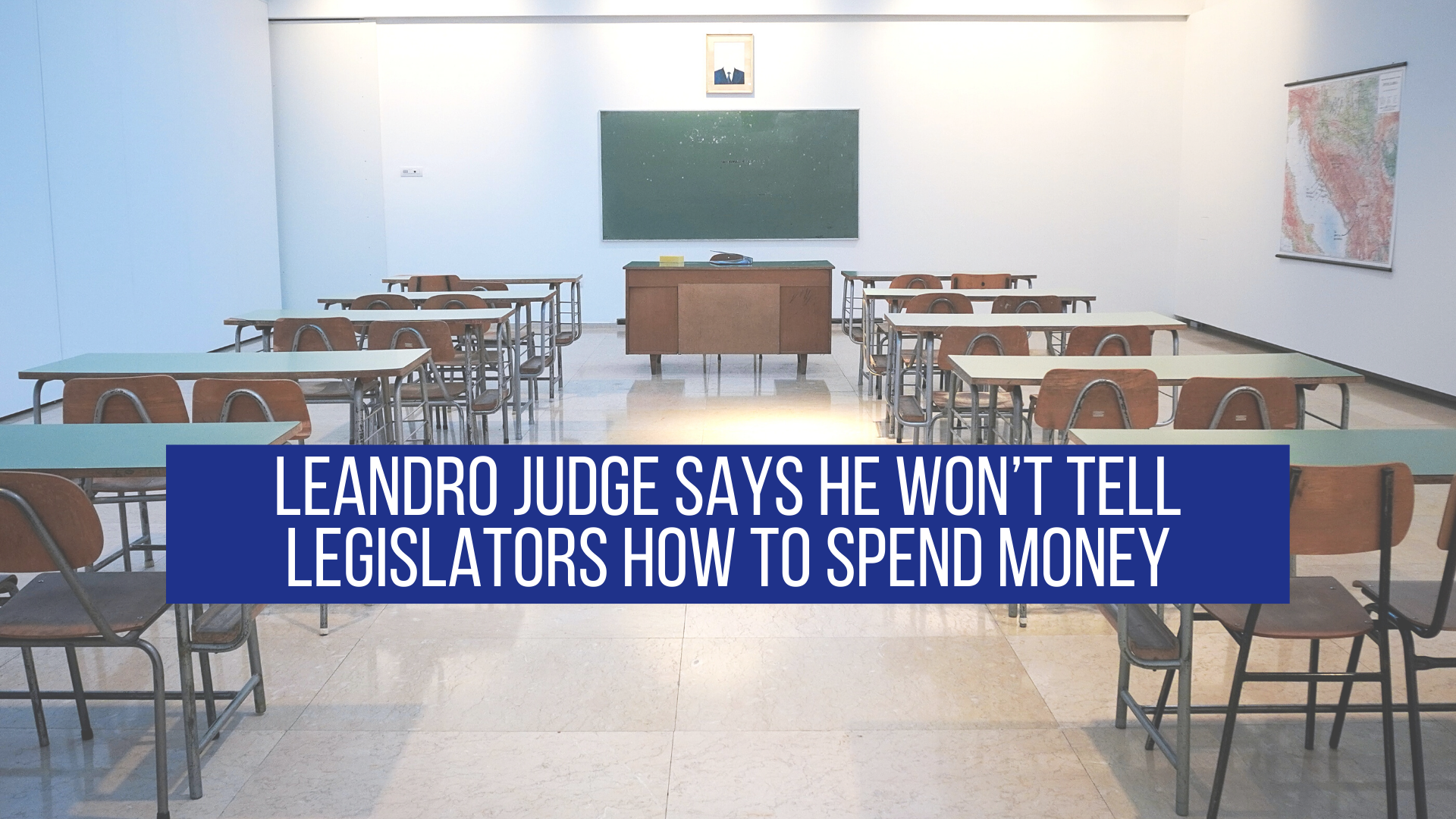A new report from the Fordham Institute argues that North Carolina’s controversial social studies standards flunk the test on history and civics, ranking worst in the Southeast.
Truitt: new analysis shows weaknesses in state's social studies standards
A new report from the Fordham Institute argues that North Carolina’s controversial social studies standards flunk the test on history and civics, ranking worst in the Southeast.
Advocates mark 25th anniversary of N.C. charter schools law
Twenty-five years ago this week the Tar Heel State legalized the creation of public charter schools. School choice advocates came together in Raleigh on Tuesday, June 22, to celebrate the milestone and highlight the impact of charter schools on families and students during the last quarter-century.
State Board of Education approves guiding documents for social studies
The N.C. State Board of Education voted 7-3 on Thursday, June 17, to approve guiding documents for controversial new social studies standards that place greater emphasis on race and gender in teaching U.S. history.
Local judge tries to compel state lawmakers to fund education plan
The judge in the ongoing Leandro school funding case has signed an order that attempts to compel the General Assembly to fund the components of the Comprehensive Remedial Plan agreed to by both the defendants and plaintiffs in the case last year.
House votes to cut off expanded $300-a-week unemployment benefits
The state House has voted to make North Carolina the 26th state to withdraw from the Federal Pandemic Unemployment Compensation program, which provides an extra $300-a-week in jobless benefits to the unemployed because of the COVID-19 pandemic.
N.C. Senate passes $1,500 bonus to get unemployed back into workforce
Unemployed people who get a job would receive a one-time bonus of $1,500 under legislation spearheaded by Republicans in the N.C. General Assembly.
Republicans propose $2.1 billion in cuts on state income taxes
Personal income tax rates would be slashed and the corporate tax rate entirely eliminated by 2028 under a proposal rolled out on Tuesday, May 25, by N.C. Senate Republicans.
Democrats propose plan to fund Leandro without Republican backing
A bill sponsored by Democrats in the N.C. House would pump billions of additional dollars into public education over the next few years toward meeting the requirements of a new remedial agreement in the ongoing Leandro lawsuit.
N.C. unemployed must now prove they are seeking work to continue benefits
An executive order issued by Gov. Roy Cooper on Friday, May 21, requires recipients of unemployment benefits to prove they are searching for work to continue receiving benefits. The move makes North Carolina part of a growing number of states to reimplement the work-search requirement.
Energy leaders, experts say N.C. too reliant on Colonial, Transco pipelines
North Carolina remains vulnerable to fuel shortages because it’s too reliant on a pair of pipelines for gas and energy, industry leaders and experts told lawmakers.
N.C. Board of Elections votes to rehire Brinson Bell as executive director
The N.C. Board of Elections voted Friday, May 14, to rehire Karen Brinson Bell as executive director. Board members Tommy Tucker and Stacey “Four” Eggers were the only dissenting votes.
Anti-critical race theory bill passes House after rancorous debate
The House has passed a bill that would prohibit the exclusive teaching of Critical Race Theory in North Carolina public school classrooms. The 66-48 vote on May 12 followed a scorched-earth debate in which Democrats called the measure anti-American and hateful, while Republicans countered that it was focused on ensuring equity in schools.
Bill would keep public schools from exclusively teaching critical race theory
The teaching of critical race theory as the only explanation of America’s past would be outlawed in public schools under a bill approved by the N.C. House Education Committee on Tuesday, May 11.
Former N.C. State receiver changes congressional run to open 13th district
Former N.C. State Receiver Bo Hines has filed FEC paperwork to run in North Carolina’s 13th Congressional District.
Collusive settlements bill moves through N.C. Senate
The N.C. Senate passed a bill along party lines on Tuesday, April 27, that would require the state attorney general’s office to get sign-off from the legislature before reaching a settlement on a lawsuit in which the General Assembly is a party.
Taxpayer Bill of Rights amendment filed in N.C. Senate
A bill filed in the North Carolina Senate on the traditional April 15 tax deadline day would make tax and spending limits a part of the North Carolina Constitution, if voters approve it in 2022.
House lawmakers push state tax exemption for expenses paid with PPP loans
Lawmakers in the North Carolina House have fast-tracked a bill that would allow businesses that received Payroll Protection Program loans from the federal government to have any expenses the funds were used for deducted from state tax.
Leandro judge says he won’t tell legislators how to spend money
N.C. Superior Court Judge David Lee, the presiding jurist in the decades-long Leandro lawsuit, said at a hearing Tuesday, April 13 that he won’t tell lawmakers how to spend money on public education.
N.C. average teacher pay $54,392 per year, second best in Southeast
Public school teachers in North Carolina receive an average annual salary of $53,392 for the current school year, according to the latest figures from the N.C. Department of Public Instruction. That puts the state second best in the Southeast — behind Georgia — in average teacher pay.




















